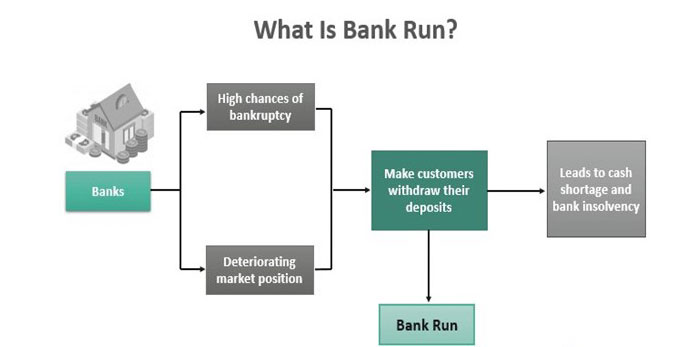Are you one of the fortunate 1.6 million taxpayers expecting a refund from the Internal Revenue Service (IRS) this year? If so, you’re among the thousands who will benefit from the agency’s surprising initiative to return money to those who’ve overpaid their taxes in previous years.
The IRS has been cracking down on errors and inconsistencies in tax filings, leading them to find that these individuals have paid too much over several years—so they are now getting some of it back!
Read on to learn more about why these refunds have suddenly become available.
Who Qualifies for the Refunds and How Much Will They Receive
The Treasury Department has reported that approximately 1.6 million taxpayers will receive surprise refunds from the IRS due to mislabeled payments from their tax returns.
Those who qualify for the refunds will typically receive a credit of $1,400 or more, depending on their filing status and income levels. Eligibility is based upon previously-filed returns that must have been submitted accurately to be eligible for the refunds.
Taxpayers should check with the IRS to see if they can receive any refund money. It's important to remember that refunds are only available for a limited time, so it's best to contact the IRS as soon as possible!
Key Tips to Ensure You Get Your Refund

- Double-check your tax filing for accuracy and completeness.
- Be sure to submit the correct bank account information for direct deposits.
- File as soon as you have all the necessary documents and information to get an early refund.
- Check with the IRS frequently if your refund has been processed or not by using the ‘Where’s My Refund?’ tool.
- Monitor your email or letter if you get an IRS notice or correspondence.
- If your refund is more than $1,000, consider opting for a check instead of direct deposit to avoid any potential issues.
- Create an account on the IRS website to stay updated on the status of your refund.
- Be aware that 1.6 million taxpayers are getting surprised refunds from the IRS, so you may be one of them if you’ve filed taxes in past years or have a change of address.
- Complete all tax forms completely and accurately to ensure quick processing with no errors.
Common Mistakes to Avoid When Calculating Your Taxes

Tax season can be stressful for many, so avoiding common mistakes when calculating your taxes is important. One of the most frequent errors is failing to double-check all numbers, including deductions and credits.
Moreover, forgetting to include income from freelance work or investments can lead to an incorrect return. Additionally, not filing on time will incur hefty penalties. It's also essential to accurately report any income from foreign sources.
Taking the time to properly prepare taxes will help taxpayers avoid costly mistakes and ensure they receive all refunds owed to them. By avoiding these common errors, 1.6 million taxpayers will likely get surprise refunds from the IRS this year.
What to Do If You've Been Underpaid or Overestimated Your Tax Liability
If you’ve estimated your tax liability incorrectly and have been underpaid or overestimated, the IRS encourages taxpayers to file an amended return with Form 1040-X. This will help ensure you receive any additional refund due or avoid penalties and interest related to underpayment.
You may also need to pay additional taxes, depending on your situation. The 1.6 million taxpayers receiving surprise refunds from the IRS serve as a reminder for everyone to double-check their returns and ensure they’re getting the full refund they deserve.
If you suspect you may have underpaid or overestimated your taxes, take action now to receive any additional refund you’re eligible for and minimize penalties and interest. Contact an IRS-certified professional for assistance if needed.
Remember, the 1.6 million taxpayers entitled to a surprise refund from the IRS indicate that you should check your returns regularly to ensure accuracy. If you have underpaid or overpaid your taxes, take action now.
What to Do With Your Refund – Ideas for Making Smart Financial Decisions
When you receive a surprise refund from the IRS, it’s important to think carefully about how to use that money. Making smart financial decisions can increase wealth and help you reach your long-term goals.
Consider investing in savings accounts or stocks, paying off debt, making home improvements, or even starting a business. There are plenty of options for utilizing your refund to make wise financial decisions that can impact your future.
Talk to an experienced financial advisor if you need help deciding how to invest your newfound funds. With careful planning and consideration, you can use this unexpected bonus from the IRS to achieve your financial goals.
Another great option is using some funds to give back to your community. Donating to charities or causes you care about can be an important part of any financial plan, and these are excellent opportunities to invest in something beyond yourself.
FAQs
Who gets the largest tax refund?
An individual's tax refund amount is based on their total tax liability, including income, deductions, and credits. Generally, those who have the lowest incomes will receive the largest refunds, while those with higher incomes may not receive any refunds at all.
In 2023, approximately 1.6 million taxpayers received surprise refunds from the IRS, totaling more than $9.
What does the 810 refund freeze mean?
The 810 refund freeze is a status the IRS can assign to a taxpayer's account. This means that the IRS has stopped any refunds or other payments until the taxpayer resolves an issue with their tax return, such as providing additional information or completing an audit.
The freeze protects taxpayers from fraud and ensures they get what they owe.
How much are most tax refunds?
Most tax refunds vary from individual to individual. Generally, people with the lowest incomes tend to receive the largest refunds, while those with higher incomes may not receive any refund. On average, taxpayers received $9 billion in surprise refunds from the IRS in 2023.
Conclusion
In conclusion, the IRS has returned over 1.6 million refunds to taxpayers this year, which they were surprised to find out.
This demonstrates their commitment to fair and transparent taxation practices and helping those who have paid too much in taxes get the money back that is rightfully theirs. It's an encouraging sign for all of us to know our voices are being heard.



